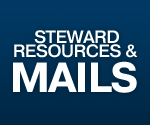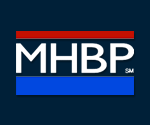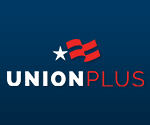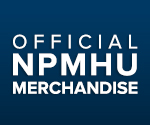March 3, 2020 Memorandum to Local Presidents- Coronavirus COVID-19 Response (pdf)
On Saturday, February 29, 2020, the National Postal Mail Handlers Union was notified that after extended overseas travel, a Seattle NDC employee tested positive for COVID-19, also known as the coronavirus. This incident, in concert with media reports of COVID-19 outbreaks in multiple states, has propelled this issue to the front line. On March 2, 2020, President Paul Hogrogian, Secretary-Treasurer Michael Hora and National CAD Representatives, along with representatives from all postal unions, met with Postmaster General Megan Brennan and senior leadership of the Postal Service to discuss countermeasures and abatement protocol to address the coronavirus outbreak. One thing is clear: we are in the early stages of this national emergency.
*The complete memorandum and related attachments are available here.
USPS Mandatory Stand-Up Talk (Feb. 29, 2020)
Staying vigilant - Flu Response and Prevention (pdf)
As you may be aware several cases of the Coronavirus have arisen in the Seattle area. One of our Seattle NDC employees has tested positive for the COVID-19, also known as the Coronavirus. This employee has self-quarantined and will not return to our facility until cleared by health authorities. In consultation with the Seattle Public Health Department, we have been informed the current risk to our employees is low and that the building in which the individual worked is safe for employees.
The safety and well-being of our employees is one of our highest priorities. To ensure the health of our employees, we are continuing to follow recommended strategies from the CDC and Seattle Public Health Department. These include:
- Increased cleaning of frequently touched surfaces in the workplace (consoles, doorknobs, countertops, workstations, etc.)
- Encouraging sick employees to stay home and consult their health care provider
- Use of contract cleaner to enhance and supplement current cleaning protocols
- Making available Clorox wipes for your use throughout the facility. Feel free to use these to sanitize your work station.
- Making N-95 Respirators and Nitrile gloves available on a voluntary basis for any employee who request them. (Note: OSHA Appendix D will be provided to employees)
- Ensuring all restrooms are well equipped with towels, soap, and hand sanitizer at all times.
We are posting additional information on all of the bulletin boards in the facility. These additional postings, created by the CDC, discuss how to respond if you experience symptoms and more information about the Coronavirus.
It’s important to remember that the best defense against sickness is good personal hygiene. Practice good respiratory etiquette and hand hygiene. Wash your hands regularly for at least 20 seconds at a time and cover your mouth when sneezing or coughing.
COVID19 Coronavirus Disease CDC Fact Sheet (pdf)
COVID19 Coronavirus SYMPTOMS CDC Fact Sheet (pdf)
CDC: What to do if you are sick with coronavirus disease 2019 (COVID-19) (pdf)
CDC: Stop the spread of germs (pdf)
OSHA Overview
According to the U.S. Centers for Disease Control and Prevention (CDC), Chinese authorities identified the new coronavirus, which has resulted in confirmed human infections in China and a growing number of other countries, including the United States. Infected patients have also spread the virus to healthcare workers. The latest situation summary updates are available on CDC’s COVID-19 webpage.
There is no evidence of widespread transmission of COVID-19 in the United States at this time. Without sustained human-to-human transmission, most American workers are not at significant risk of infection. Exposure risk may be elevated for some workers who interact with potentially infected travelers from abroad, including those involved in:
- Healthcare
- Deathcare
- Laboratories
- Airline operations
- Border protection
- Solid waste and wastewater management
- Travel to areas, including parts of China, where the virus is spreading
There is much more to learn about the transmissibility, severity, and other features associated with COVID-19 as the outbreak investigation continues. Infected people can spread COVID-19 through their respiratory secretions, especially when they cough or sneeze. According to the CDC, spread from person-to-person is most likely among close contacts (about 6 feet). Person-to-person spread is thought to occur mainly via respiratory droplets produced when an infected person coughs or sneezes, similar to how influenza and other respiratory pathogens spread. These droplets can land in the mouths or noses of people who are nearby or possibly be inhaled into the lungs. It’s currently unknown if a person can get COVID-19 by touching a surface or object that has the virus on it and then touching their own mouth, nose, or possibly their eyes.
In addition to this OSHA guidance, employers and workers should consult interim CDC guidance specific to COVID-19. CDC also provides tips on what the general public should do during the ongoing outbreak.
 NATIONAL NEGOTIATIONS
ECONOMIC DISCUSSIONS
NATIONAL NEGOTIATIONS
ECONOMIC DISCUSSIONS



